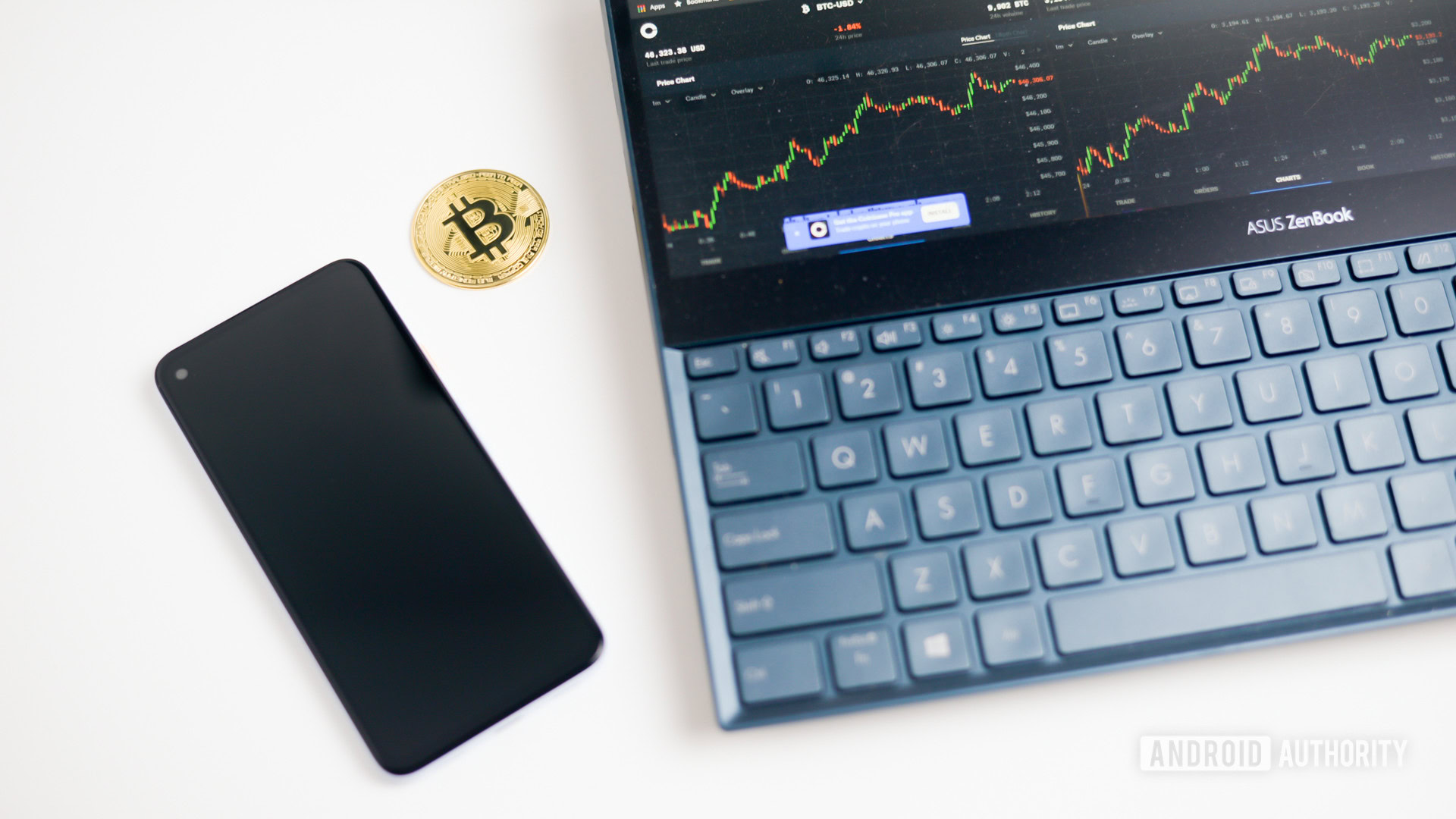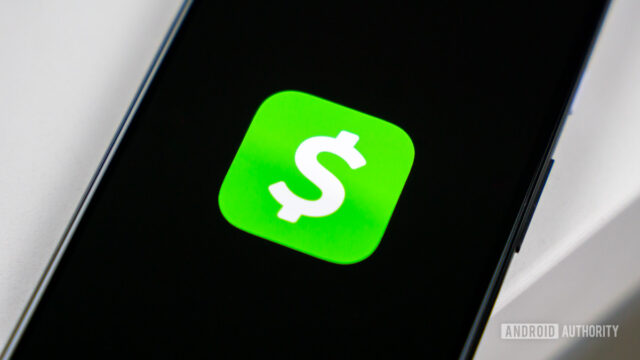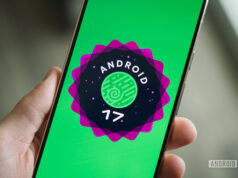Block’s Cash App is a part of daily life for a lot of Americans and Brits, but for that reason, it’s also a potentially lucrative target for scammers. Whether you’re new to Cash or just worried about being exploited, here’s a guide to some of the most common scams on the service and how you can stay safe.
9 common Cash App scams and how to avoid them
Edgar Cervantes / Android Authority
1. “Free” money
The Cash App team actually does hold occasional sweepstakes via its X/Twitter account, but these never require sharing your PIN or sign-in code. They certainly don’t require sending your own money, buying something, or downloading an additional app. If someone asks you to fulfill those conditions before awarding a prize, they’re trying to scam you.
If you do win money via an X sweepstakes, the payment will be delivered via the verified Cash App account, labeled with a blue checkmark.
2. “Accidental” transfers
This is an unfortunately clever scheme in which a thief with a stolen credit card (or possibly a hacked bank account) uses it to send you money, but then ask for the funds back on the pretense that you were the wrong person. If you comply, what really happens is that the card/bank company reverses the original charge, but the thief gets to keep the money you’ve wired.
Avoiding this threat is simple — don’t respond to a request for a money back unless the person is known to you and trustworthy. Chances are, you’ll already know if they sent you money by accident.
3. Crypto, flipping, and other investment scams

Edgar Cervantes / Android Authority
A minority of people have made honest fortunes off of cryptocurrencies like Bitcoin, but if someone claims they can guarantee a profit in exchange for a small initial investment, that’s a scam. There are no guarantees with crypto, and a legitimate investment opportunity isn’t going to come through a mobile payment app — or be financed that way, if a scammer approaches you via SMS or social media instead. Most likely they’ll take your money and run.
You may be targeted with schemes for other investments, like stocks, but these tend to follow the same template as a crypto scam. When you are prepared to invest in something, do your research on the product, and only channel your money through reputable investment platforms. Be prepared for risk — crypto in particular is volatile, so you could be out thousand of dollars (or more) if the market turns south.
4. Deals on luxuries
Since Cash is used by legitimate retailers, what scammers sometimes do is try to masquerade as one, but promise a steep discount on goods like handbags, jewelry, or concert tickets. There’s a reason it’s steep — they’ll just take the money and ignore you. You’re not going to get a Hermès Birkin or a seat at a sold-out Taylor Swift show from a business you’ve never heard of before.
Generally speaking, we’d only use Cash App to pay at physical locations. There may be genuine online businesses that rely on the app, but most sites worth shopping from are going to accept direct credit or debit card payments.
5. Fake customer support
You may be approached by someone claiming to be a customer service representative with Cash. The person will warn about possible fraud, but then ask you to supply both your password and and a one-time sign-in code, possibly through a website link. Sharing this info in any form is a mistake, since what you’re really doing is giving a scammer the means to hijack your account.
Real support staff will never ask for your login details, and you normally have to approach them for help rather than the other way around. Assuming there is a link in a message, it should point to a familiar URL like cash.app if it’s safe. When in doubt, don’t tap.
6. General phishing scams
Phishing is a common tactic in which you’re directed to a website that looks authentic, but is really meant to capture personal info, such as your Social Security number or your bank or Cash App login. The customer support scheme above is an example, but other phishing scams may come from people impersonating stores, the government, or even people you know. Falling prey will probably result in theft or extortion.
Thankfully, most phishing scams are easy to spot. They tend to come out of the blue, and the initial message is purpose-built to get you to tap on a link. That link will also use a URL that references an app or company, but isn’t hosted on the same domain as the real deal.
7. “Screenshot” scams
This is actually a variant of some other scams on this list, the twist being that a scammer will use a screenshot as supposed proof of something like a prize or a pending payment. Whatever the excuse you’ll be asked for money or gift cards, but of course, you shouldn’t hand over anything.
We’re breaking this out as a separate category not just for the twist, but to highlight the point that screenshots are meaningless when it comes to legitimizing transactions. They’re relatively easy to edit using apps like Photoshop, so they don’t prove anything on their own.
8. Romance/catfishing and prostitution scams
Speaking of fake images, scammers willing to play the long con may start flirting with you via messaging apps or social media, using stolen photos if they want “prove” they’re a real person. Once they create the illusion of a relationship, they’ll manufacture a reason for you to send money via Cash, such as covering rent or a family emergency. They could disappear immediately after that, but more insidious scammers might try to string you along even further.
Even intelligent people can fall for catfishing, but skepticism is your ally here. It’s very unlikely that a romantic interest will message you out of the blue. Before getting emotionally invested in anyone, you should arrange a public meeting or at least a video call, and check that their social media profiles seem genuine. Use a reverse image search tool like TinEye if you suspect someone’s photos are stolen.
Whether or not prostitution is legal where you live, don’t be taken in by random online solicitations. They could easily be fraud, or just another way of launching phishing or malware attacks. In any event, you’re probably not going to get what you want.
9. Government refund/payment scams
Here a scammer pretends to be with a government bureau (such as a tax agency), claiming you’re owed money but that they need details from you such as your driver’s license or Social Security number. Alternately, they may insist that you need to pay a fee or overdue balance before sending money your way. If they’re not trying to steal money, they’re trying to steal your identity.
Let’s make this crystal clear — no government anywhere in the world handles official transactions through Cash App. Aside from the possibility of impersonation, agencies can’t assume you have a smartphone, much less one with Cash installed.
Does Cash App refund money if I’m scammed?
You might be able to, but you’ll have to be patient. Once you’ve reported an incident (see below), Cash support tries to escalate it to an associated bank or card company. It’s up to the latter party to decide if there’s something actionable. If they do, they’ll try to block or reverse the transaction.
What to do if you get scammed on Cash App

Edgar Cervantes / Android Authority
First, stop interacting with the scammer, but capture as many related screenshots as possible. Yes, we pointed out earlier that screenshots aren’t always trustworthy — but you’ll at least have personal reminders, and some basic form of evidence you can show to Cash support, a bank/credit company, and/or the police (more on that in a minute).
The next step is to report the transaction. Tap on your profile icon, then go to Support > Report a Payment Issue and choose the appropriate payment.
Whether or not you’ve managed to avoid a scam, you should also report or block the scammer. Find and select their profile, then scroll down to the bottom and tap Report or Block.
Depending on the severity of the incident, you may want to file a report with local police. There may not be much they can do if they don’t have a way of personally identifying a suspect, or if the suspect is in a foreign country, but you’ll at least be putting the scam on their radar and helping to build a history for it. After all, you may be just one of many victims.
FAQs
It’s best not to make that info public unless it’s necessary, say if you’re running a business. Operating on a need-to-know basis reduces the chances of scammers targeting you.
There’s not much a person can do with just your routing number, since that’s already public, but combining that with your bank account info is enough to siphon money.
No. While Cash App does offer encryption and other security features, there’s no baked-in fraud protection for payments, unlike PayPal. FDIC insurance (in the US) is limited to Cash Card users and sponsored accounts, whereas PayPal customers are covered for Direct Deposit, PayPal Savings Account, and PayPal Debit Card usage.
We don’t know. Block doesn’t seem to share this info publicly.
Possibly, but probably not if the money is flowing from one Cash account to another, since those transactions are normally instant. If the option is available, you should see a Cancel button when you open a payment in your activity feed.








